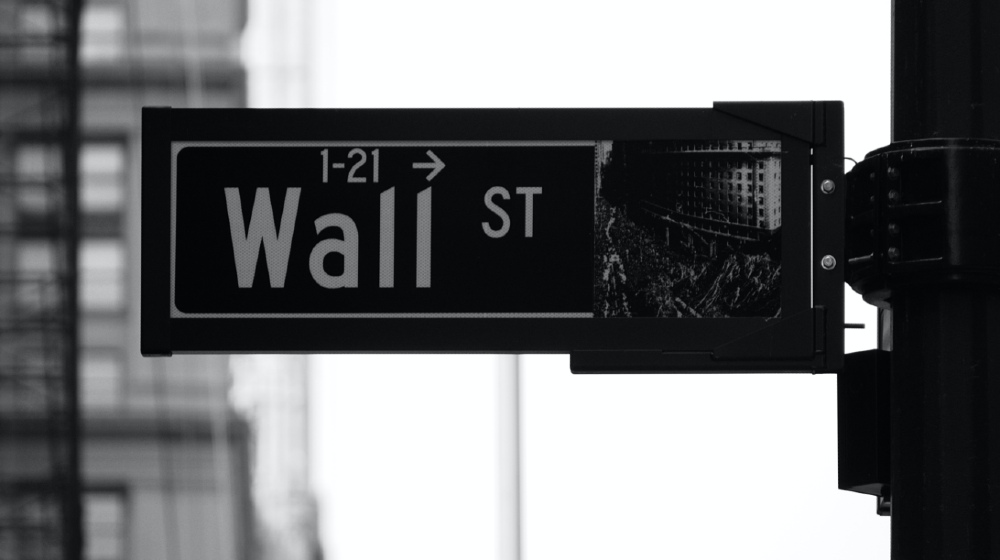Business
Market Insiders Are Cashing In

Insiders Are Cashing In Even as Wall Street Stays Strong
Wall Street is nearing record highs despite a pandemic, so things should be looking great. The S&P 500 has rebounded 51% since its March lows and is looking to break its all-time high of 3,386.15. Despite the highs though, a pattern emerges that may be a sign of things to come. Insiders such as CEOs, executives, and officers have begun cashing in their stakes. According to a CNN report, insiders have sold more than $50 billion worth of shares since May. In the last four months, three have seen insider stock worth more than $15 billion change hands.
RELATED: S&P 500 Hits Record All-Time High
Cashing In On Options
Executives who recently unloaded stock include those whose companies' values rose since March. They include the following:
- CEO James Gorman of Morgan Stanley, who sold 150,000 shares valued at $8 million. He sold shares the day after MS reported 2nd quarter results that exceeded estimates. Morgan Stanley stocks are up 85% from their 52-week low.
- CEO John Robinson of Aaron’s Inc. sold 261,000 shares at an average of $51.74 apiece, with gross proceeds of more than $13 million on sales July 31 and August 3. Aaron's stock has fluctuated between $13-01 to $78.65.
- Advanced Micro Devices Inc. (AMD) is running rings around rival Intel this year as it joined the $100 billion club. With stocks 17 times its 2016 price, director Nora Denzel sold 75,000 shares at $78.75 for a little less than $6 million.
- BlackRock CEO Larry Fink oversaw stock prices rising 80% since its March low. With current BlackRock hovering at the $600 mark, Fink sold 40,000 shares worth about $24 million last July 21.
- After suffering through a share price of below $200 in March, United Health is now at trading at $320.51. Last July 21, Chairman Stephen Hemsley sold 230,000 shares worth around $70 million. CFO John Rex also sold 69,000 shares at $21 million.
- Amazon CEO Jeff Bezos sold shares worth $3.1 billion this August. The stock sale is part of a scheduled 10b5-1 trading plan but is also timed when share prices have risen 73% this year.
What does this all mean?
Last March, most insiders foresaw the bottoming out of stocks and bought in bulk. The suits started unloading as the market started to recover, leading to a payoff. July saw sellers outpace buyers 5:1, where only twice in 30 years has the sell-buy ratio been higher than now. Compared to the 1,160 insider buyers on average earlier this year, July now averages less than 200 buyers.
Marc Chaikin of Chaikin Analytics says insiders must have realized the “market has gotten way ahead of itself.” These concerns didn't change the fact that it was easy money from the Feds that drove the market rally.
“The market doesn't care. It's a Fed-induced, liquidity-driven market,” said Chaikin. “Money has nowhere to go.” He said that with almost zero interest rates, the Fed forced investors to bet on risky stocks. Which they did. He remains unfazed at the spate of selling. He said: “That doesn't really tell me anything. In a momentum market, insider selling is not a yellow flag.”
Executives are people too
Nicholas Colas of DataTrek Research factors on the human side of executives. He said that they may be “figuring out their own personal balance sheets. These are real people making real economic decisions.” Executives may also be cashing in because “they fear for their own jobs as companies mull cost-cutting…” Colas added: “These aren't Robinhood traders. They are executives trying to figure out the right amount of cash in the bank in case they get laid off.”
John Ogg of 247wallst.com believes that it may be a sign that the market recovery is almost complete. Yet, Ogg also notes one interesting detail. He noted that many of transactions happened after the stock market recovered. At the same time, these insiders have not offered guidance in the incoming recession.
In all honesty, this sell-off pattern may not mean much but an exercise in opting at a good time. While it's a rule for inside investors to report when they sell a stock, they are not obliged to tell why. Do insiders know something we don't? Or do we forget that stock options won't pay for the groceries or that Amazon package that is about to arrive? Or, like most retail investors, they see today's markets as a good time to make a legal, quick buck.
Watch this as Bezos Sells Amazon Shares Worth $3.1B:
Do you see the heightened insider selling as a sign of things to come? Is that a good sign, a bad one, or nothing at all? Share your thoughts on the comment section below.















